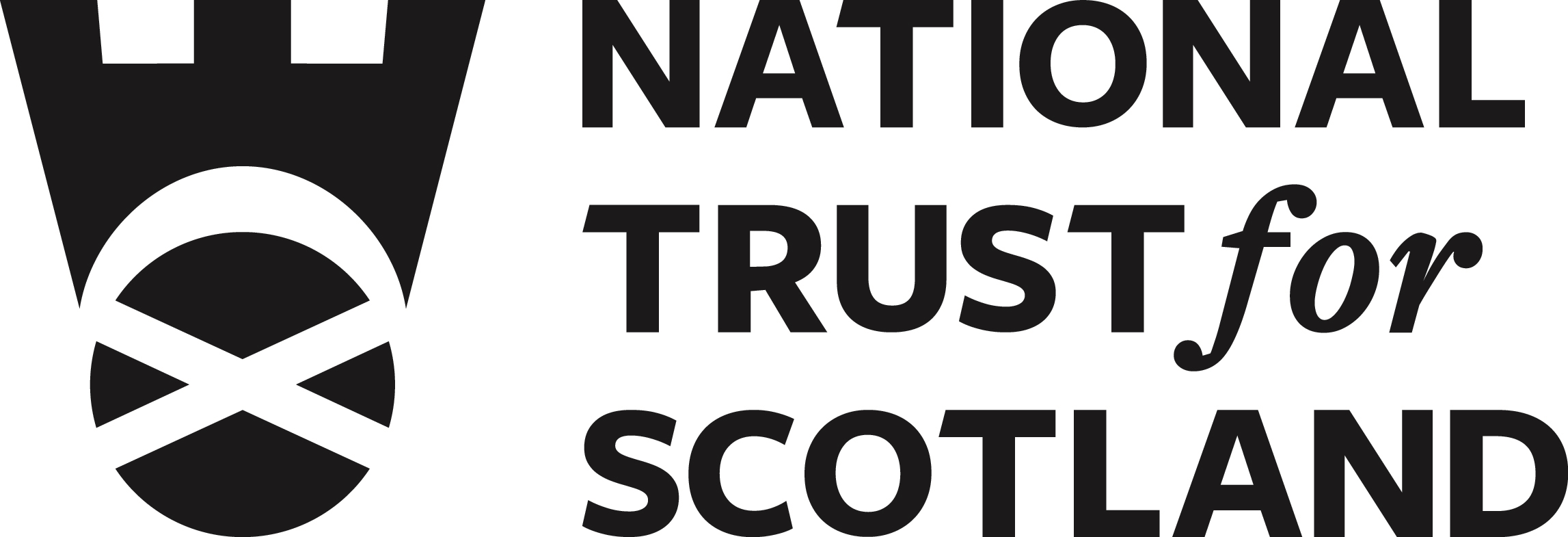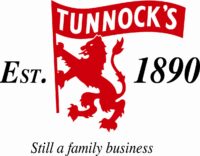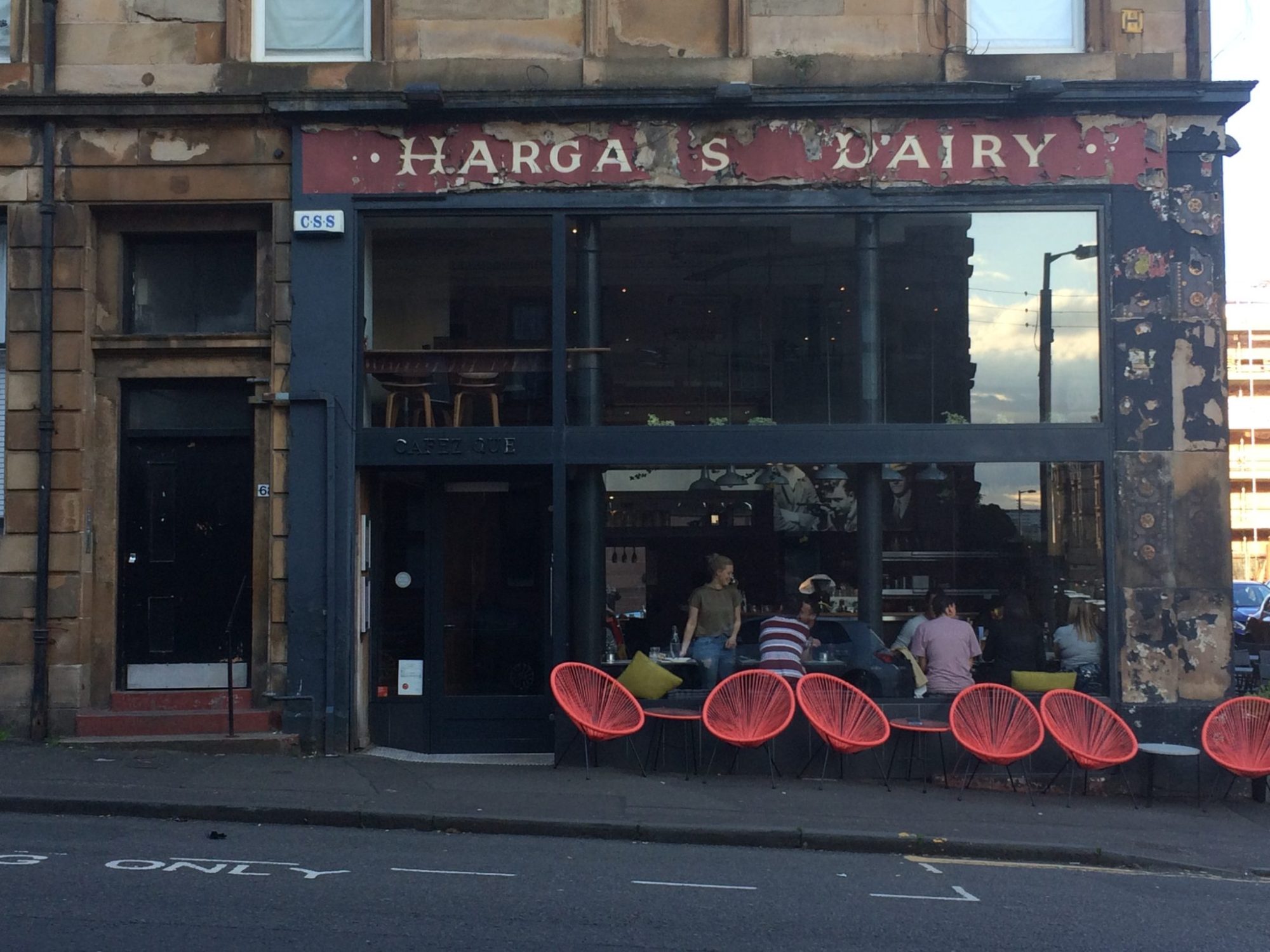A great host, interesting guests and intriguing topics are all essential ingredients to make a great podcast… but do you know what else could make our new podcast truly amazing?…
You!

PLACES AND PEOPLE
“If Glasgow’s Walls Could Talk” – a new podcast series produced by Glasgow City Heritage Trust – explores the relationships, stories and shared memories that exist between Glasgow’s historic buildings and places and the city’s communities. We have ten episodes in the bag, but now we need your help to develop phase two of this great project!
From August to October 2021 we will ask you to share your memories and thoughts about a specific topic, we will be selecting the best messages to be included in the podcast!
EXPERIENCES, THOUGHTS, KNOWLEDGE AND MEMORIES
Each episode focuses on a specific area, type of building or aspect of Glasgow’s heritage, not only from a historical and architectural point of view, but also from the perspective of the community; drawing on the guests’ personal experiences, thoughts, knowledge and memories.
The podcast, launching in late October, has an informative yet informal style. The topics covered, are varied and appealing to a wide audience, such as murals, the mapping of queer heritage, tenement living, heritage and disabilities and many many others.
CURIOUS?
You can now listen Episode Zero of “If Glasgow’s Walls Could Talk” on Spotify, Apple Podcasts, Google, Amazon, Podcast Addict, PlayerFM and wherever you get your podcasts. Don’t forget to subscribe!
CONTRIBUTE TO THE PODCAST
You will be able to find all the different topics and the instructions of how to leave a message on this page, we will be changing the topics on a regular basis, so keep an eye out and be sure to follow us on social media @GlasgowHeritage #IfGlasgowsWallsCouldTalk
The easiest way to contribute to our podcast is via our online survey
But there are also other ways to leave a message:
- On our dedicated phone line at 07902976218 – Call the number above and leave us a voicemail on our answering machine. Your call will be automatically redirected to voicemail. (Please be aware that you need to make a mobile phone call not a WhatsApp or other wifi Voice Call)
You can leave us a voice message on WhatsApp at the same number. To do this:
- Open a new chat, and select or add our podcasts phone number.
- Make sure you have the Message box selected.
- Tap and hold the microphone and start speaking.
- Once finished, remove your finger from the microphone. The voice message will automatically send.
2) You can drop us an email at podcast@glasgowheritage.org.uk and we will have someone else read it out for you on the podcast. Please be mindful of the length of your message – not more than 300 words.
Remember to share some information about yourself in your message, such as your name, age and where you come from.
IMPORTANT:
Please be aware that by sharing a memory with us you are agreeing to have your memory (and your voice where relevant) shared publicly on the podcast, read the terms and conditions.
TOPICS
We are asking you to share your memories and thoughts about the following topics, we added some questions to inspire you but please feel free to share whatever memory, thought, opinion you have on the topic!
TENEMENTS AND TENEMENT LIVING:
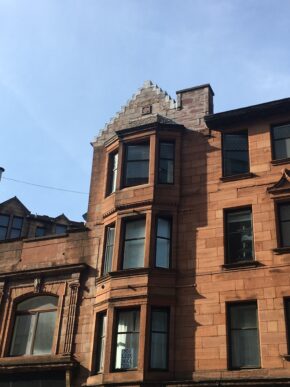
This episode focuses on the experience of living in a tenement, in the past and in the present. We will be exploring the story of tenements in Glasgow, and tenements as communities.
WE WANT TO HEAR FROM YOU!
- Do you live in a tenement?
- What was your favourite aspect of living in a tenement?
- What memories do you have of living in a tenement?
- Why do you think living in a tenement is so special?
- Do you have any special memory linked to tenement living?
LEGACY OF SLAVERY:
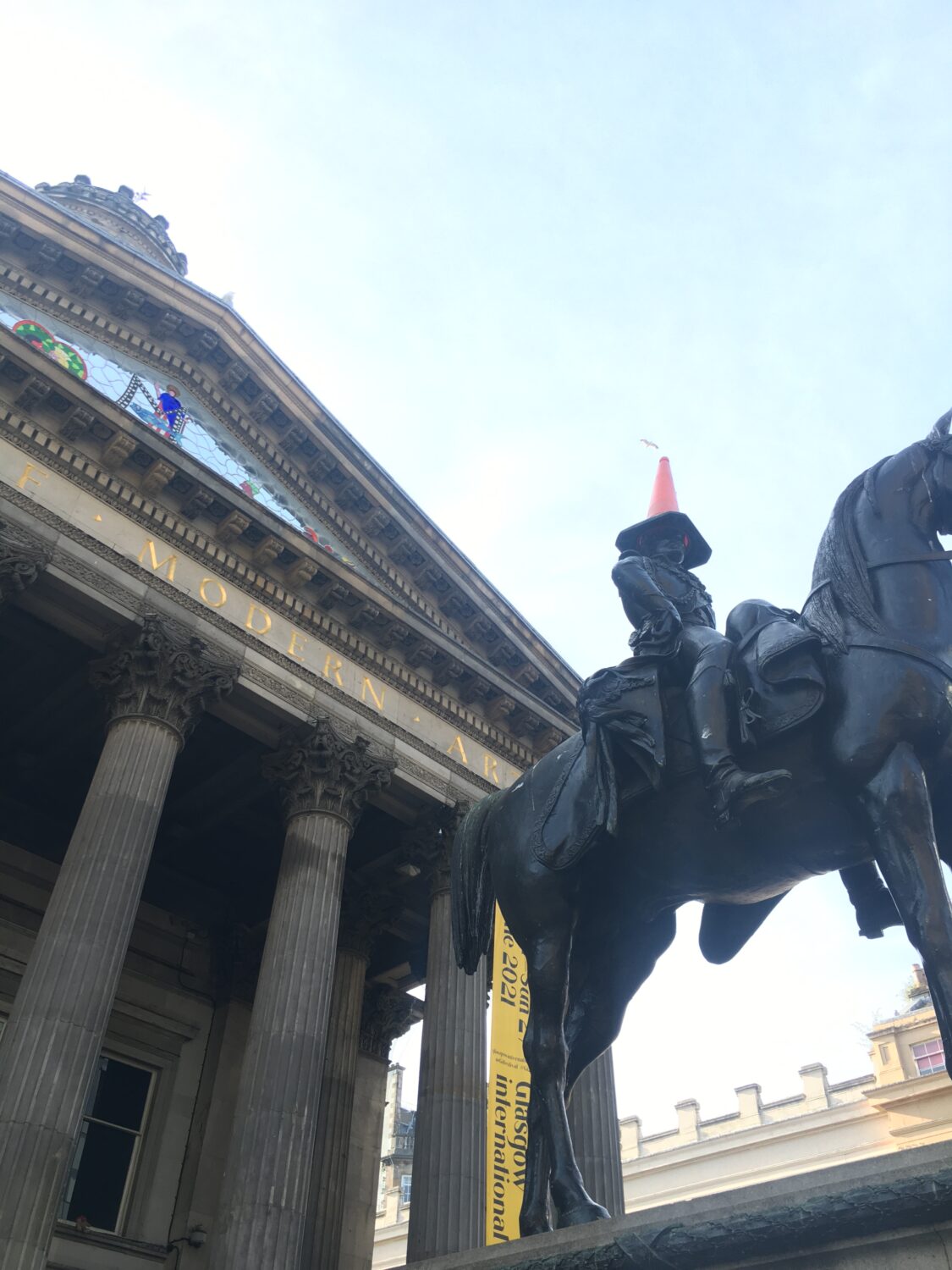
In this episode we will explore the legacy of slavery in Glasgow and on the buildings and streets that were built on the back of the slavery trade. We will be exploring how Scotland dealt with its past and how we can interpret it correctly for future generations.
WE WANT TO HEAR FROM YOU!
- How much do you know of Glasgow’s past?
- Do you know how many buildings and streets are named after the Tobacco Lords?
- What do you think is the best way to interpret this aspect of Glasgow’s past?
- How can we review and reinterpret this history, taking into consideration all the stories that were left behind?
MAPPING QUEER GLASGOW:
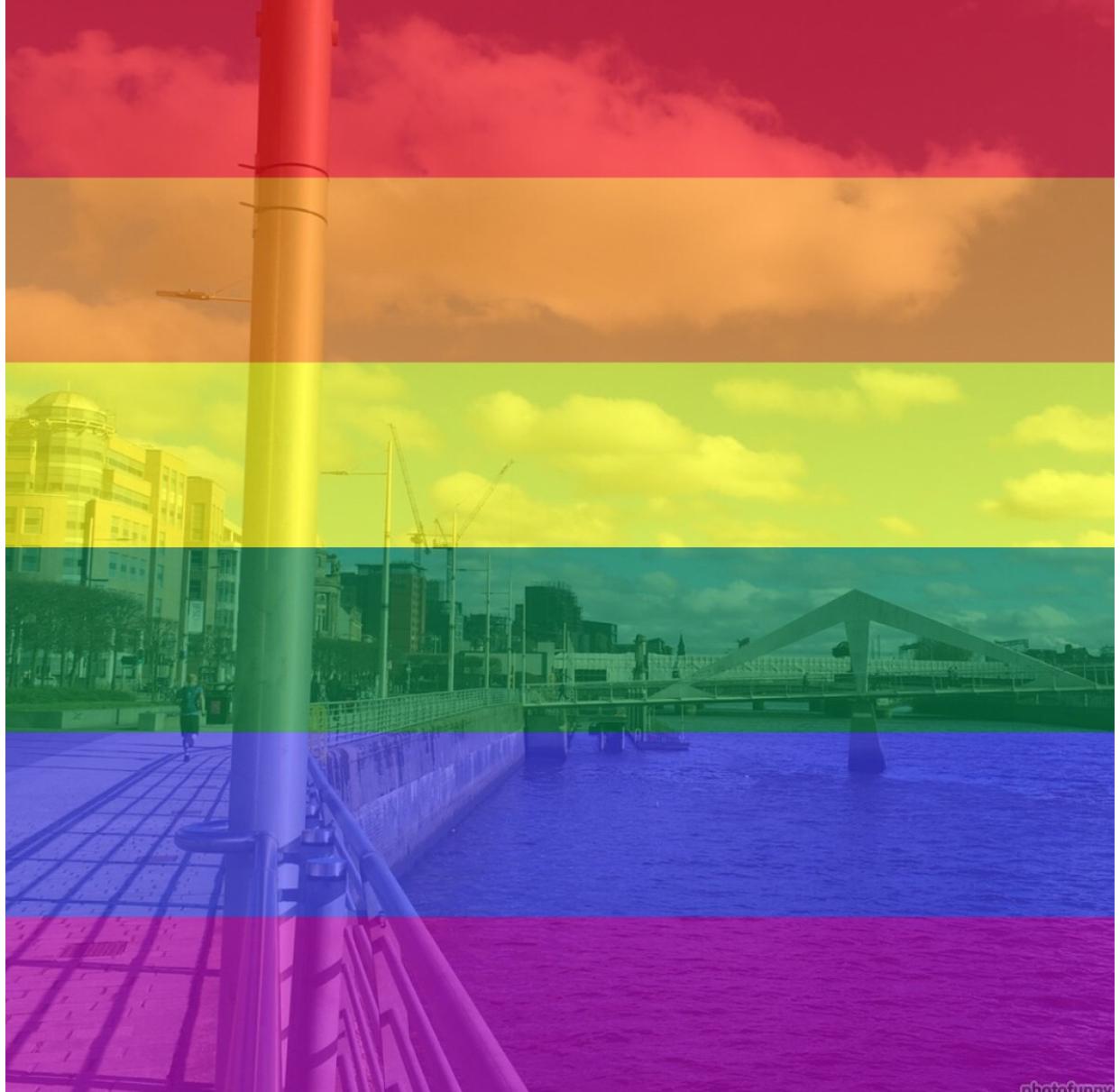
In this episode we will talk about Scottish LGBTQ+ history and places and how Queer stories are researched and interpreted. Queer spaces, bars, pubs, book shops have such an important role in queer history how can we make these spaces relevant?
WE WANT TO HEAR FROM YOU!
- How can we research and collect Queer stories and make them relevant again? What sort of traces have past LGBTQ+ people left behind?
- Is there a building you think is representative of Queer history in Glasgow? What is your experience?
COMMUNITY OWNERSHIP AND HISTORIC BUILDINGS:
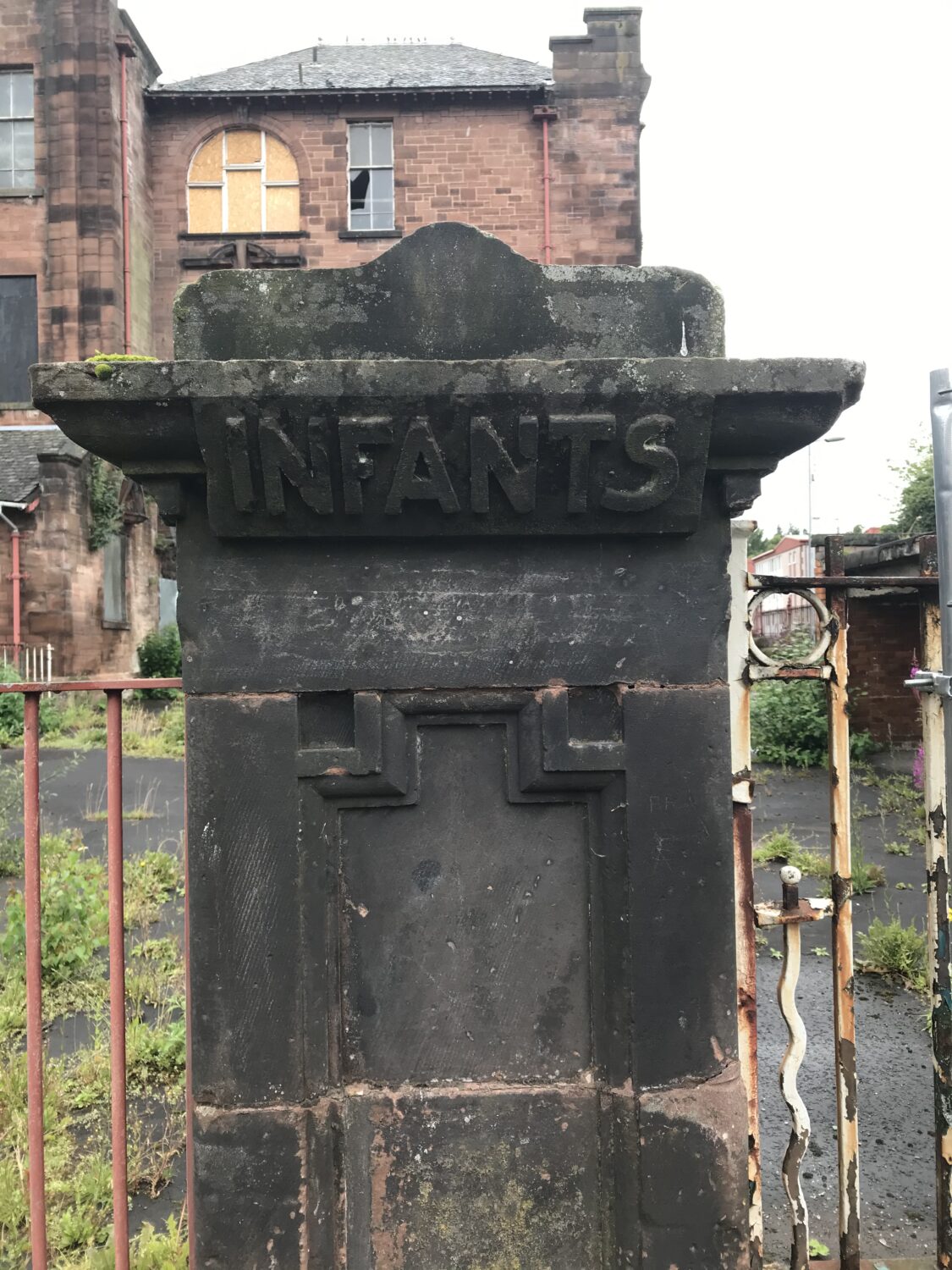
This episode focuses on community ownership and historic buildings and on historic school buildings in particular, why there are so many and how the community can get involved in their preservation?
WE WANT TO HEAR FROM YOU!
- Do you live next to a derelict building?
- Why are public buildings important for communities?
- Do you used to go to a school that is now demolished or derelict? What are your memories of it?
ACCESSIBILITY AND INCLUSIVITY:
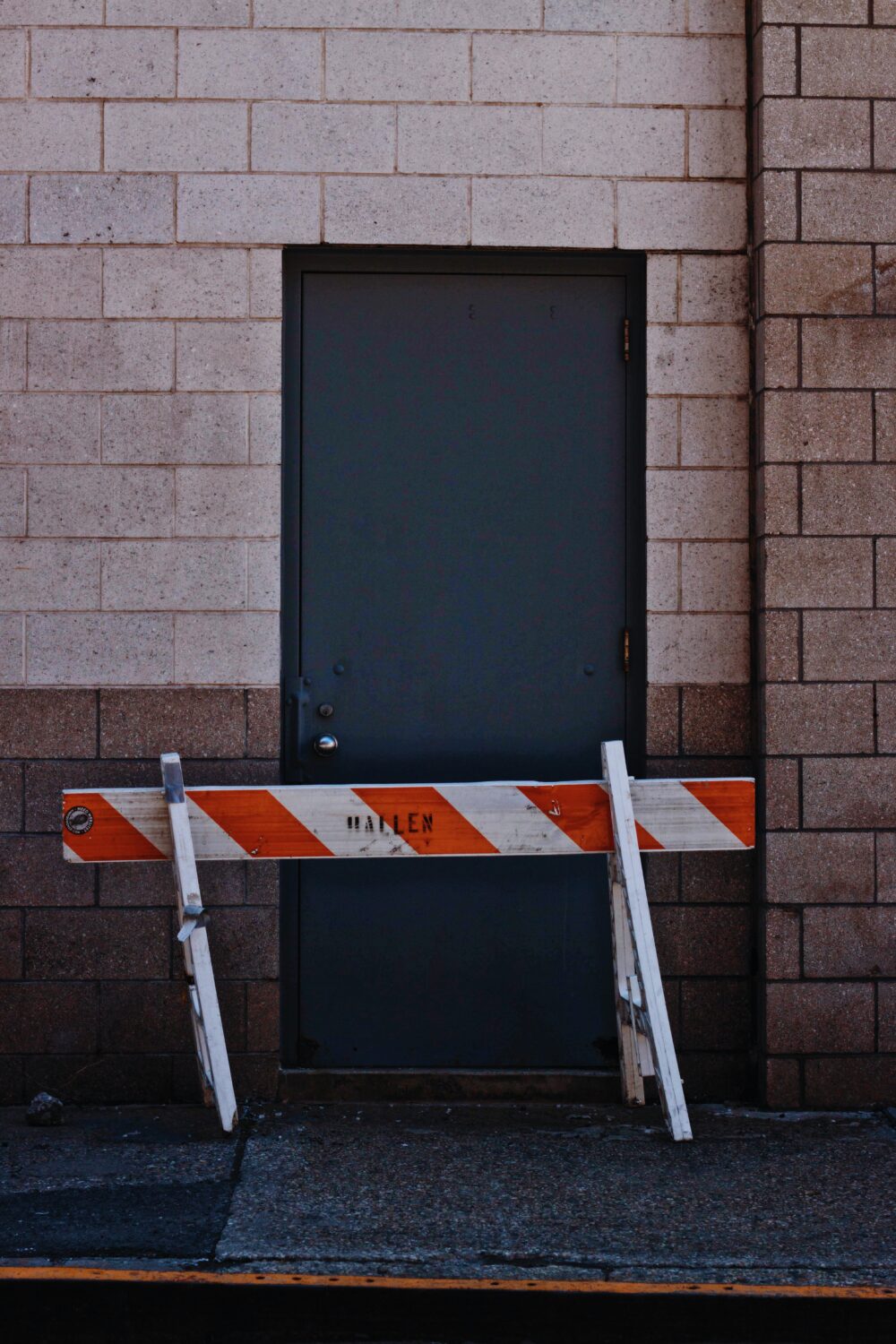
This episode investigates accessibility and inclusivity in relationship to Glasgow’s historic built environment and heritage sector.
Architectural, structural and social barriers of all kinds are at the root of disabled people’s exclusion and inequality, and are an obstacle to their enjoyment and appreciation of heritage, culture and art.
Looking at the most recent datas from Visit Scotland (2021), in Scotland, one in five people is disabled, only 8% of Scottish people with disabilities are wheelchair users and 70% have disabilities that are invisible.
WE WANT TO HEAR FROM YOU!
- What do you think needs to be done in order to create spaces that are truly accessible and inclusive of people with disabilities?
- What makes a space truly fully accessible and what are the steps to achieve this status? Do you think that Glasgow is an accessible city?
- What is your experience of accessibility in heritage spaces?
HISTORIC MUSIC VENUES AND BALLROOMS:
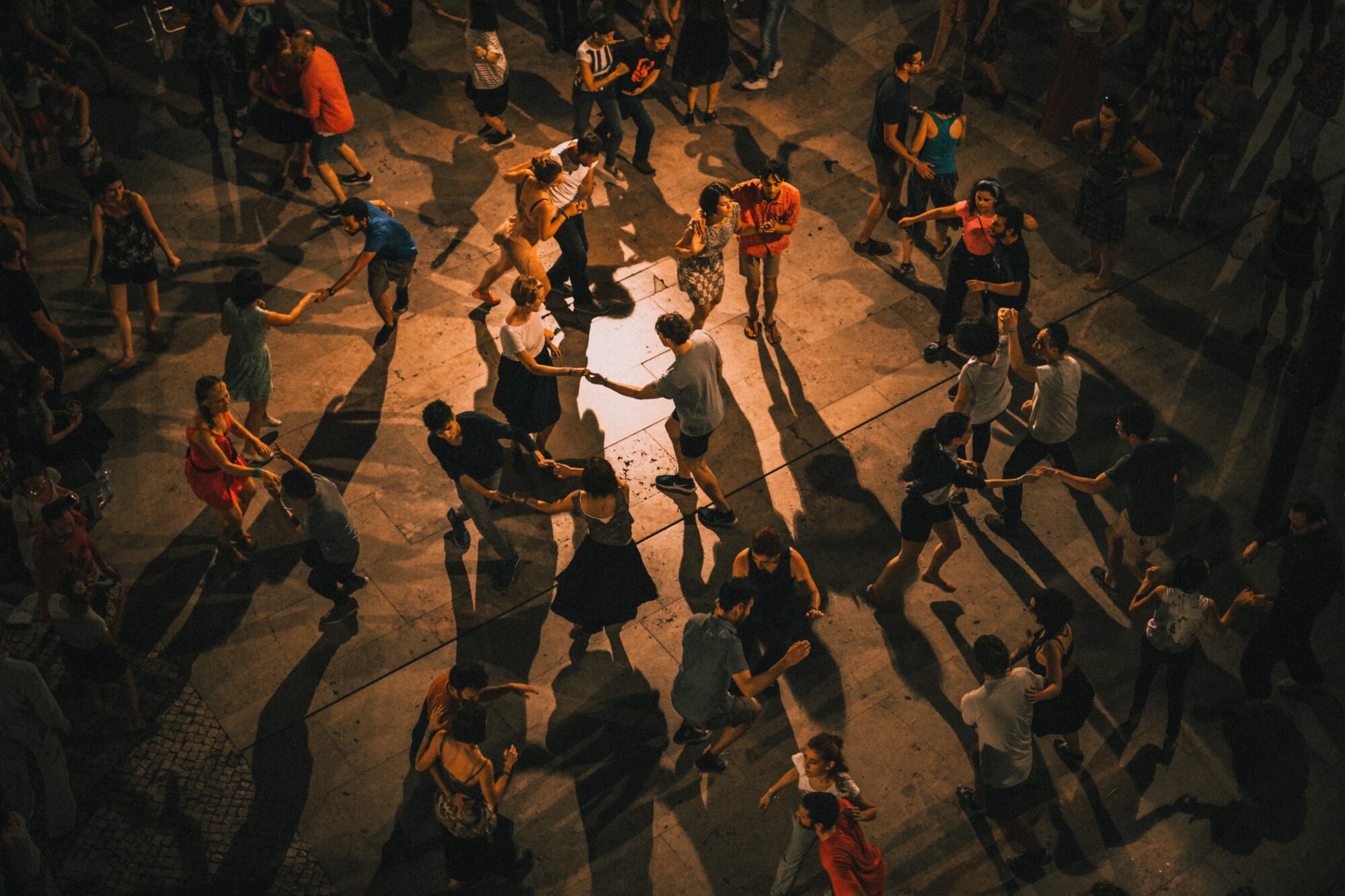
In this episode we will be exploring historic music venues and ballrooms as spaces of interactions and connection.
The period between the start of the First World War and the mid-1950s is known as the golden age of social dancing in Glasgow, when the city had at least eighty dance halls! By the mid-1950s onwards, ballroom dancing declined in popularity and a lot of the most popular ball rooms had to turn into music venues to survive in an attempt to adapt to the ever changing times, but successfully continuing to be spaces of social gathering and fun.
WE WANT TO HEAR FROM YOU!
- How many of your favourite memories are linked to a ball room or a music venue, such as the Locarno, Barrowland Ballroom, Dennistoun Palais? Can you share them with us?
- How important do you think these spaces are for our collective memory?
- Is your favourite venue still in business? If not, how did you feel when it closed?
- How much have these buildings have shaped your life, memories and relationships?
GLASGOW’S MURALS:
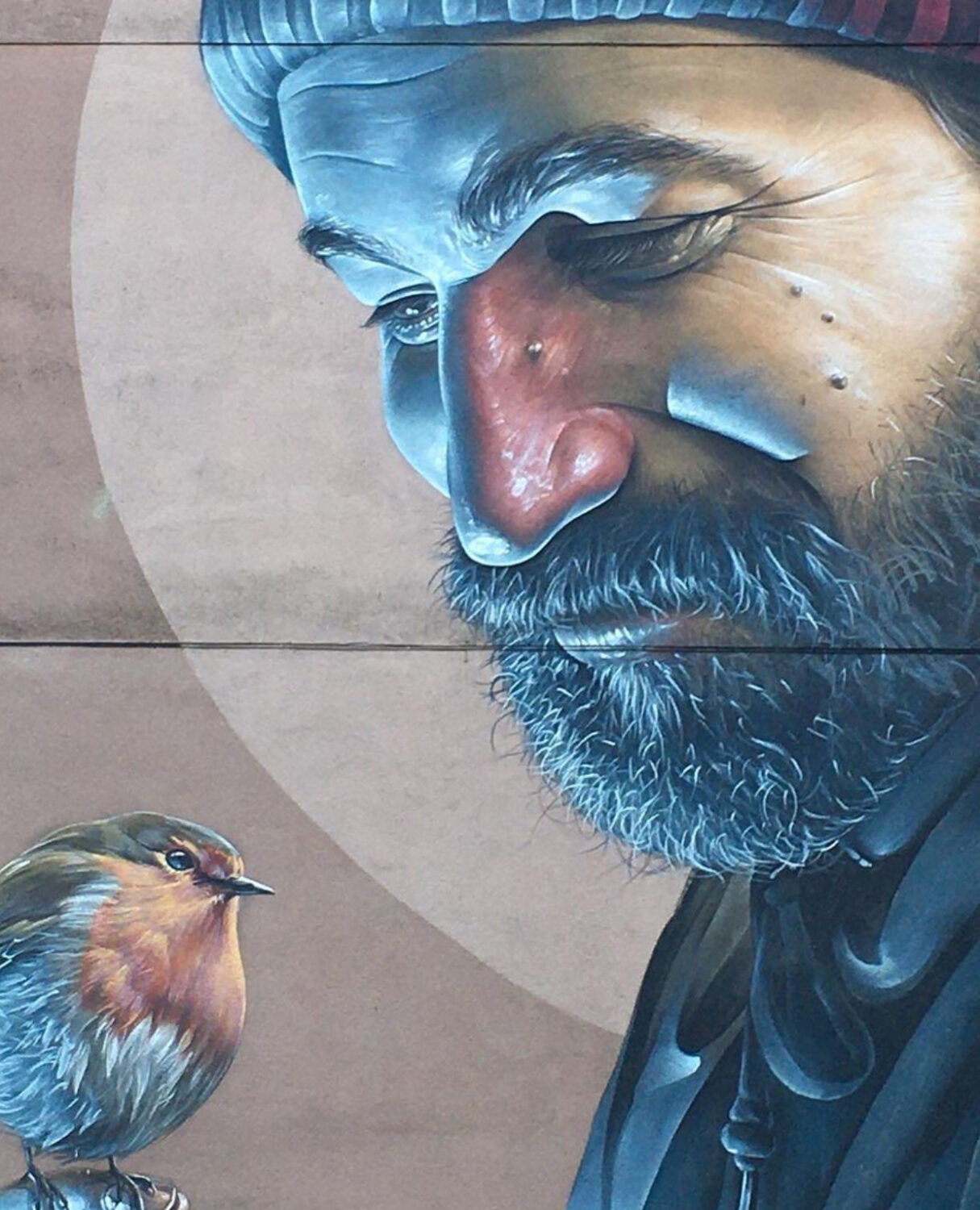
This episode focuses on Glasgow’s amazing murals and who are the people and the organisations behind them. The word mural originates from the Latin word “murus”, meaning wall, any artwork painted or applied onto a wall can de defined as mural art.
As powerful representations of society, these amazing works of art around our city can be often political and sometimes controversial. In the last decade Glasgow flourished with murals that can be found almost everywhere in the city, covering a huge variety of topics, from Saints’s lives to flying taxis, pelicans and poems.
Each mural tells a unique story and enriches the urban landscape.
WE WANT TO HEAR FROM YOU!
- Do you have a favourite mural in Glasgow? Which one and why?
- Do you think murals enrich Glasgow’s urban landscape? If yes, why?
- What would you like to see depicted on a mural? Dream big!
STADIUMS AND FOOTBALL:

In this episode we will be talking about football and its social importance, and also about how much stadiums shaped and influenced Glaswegians’ lives during the centuries.
Football in Scotland goes back to almost 600 years ago and, just like nowadays, was enjoyed by monarchs such as James IV and Mary Queen of Scots, and commoners alike. Glasgow is home to a few iconic stadiums whose history is deeply intertwined with the history of the city and its people, like Ibrox Stadium (Category A listed) and Hampden Park, both designed by the same Glasgow born architect, Archibald Leitch, (27 April 1865 – 25 April 1939).
WE WANT TO HEAR FROM YOU!
- Do you have a favourite stadium?
- What is your favourite memory of going to a match in Glasgow? Can you share it with us?
- How much do you think football as a collective experience shape people’s lives and relationships in Glasgow?
ENTERTAINMENT INDUSTRY (MUSIC HALLS, THEATRES AND CINEMAS):
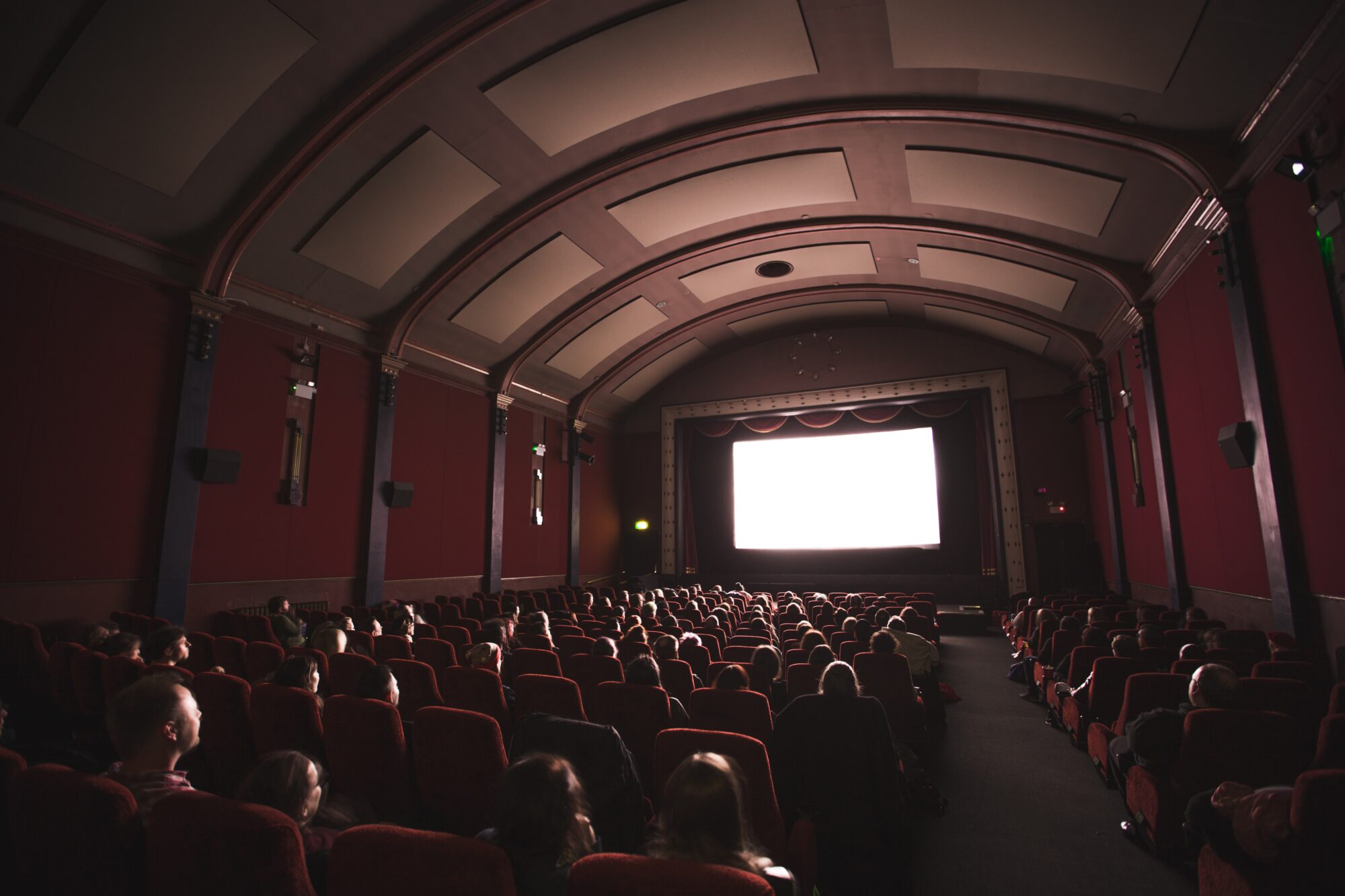
In this episode we will exploring Glasgow’s entertainment industry in the last two centuries or so, our city has been home to a huge number of theatres, cinemas and music halls. During the years these spaces occupied (and still do!) a significant role in the social and architectural life of the city and in people’s memories.
If we look at the number and variety of historic cinemas, music halls and theatres…Glaswegians are definitely spoiled for choice!
Think about the Theatre Royal (A listed), the Citizens Theatre (B listed), the Britannia Panopticon Music Hall (A listed) Glasgow Film Theatre (B listed), or Govanhill Picture House (B listed), just to name a few!
WE WANT TO HEAR FROM YOU!
- What is your favourite historic theatre/cinema in Glasgow? Why?
- Do you have a special memory linked to going to the theatre/cinema?Can you share them with us
- If you could travel back in time, which movie/show would you like to watch? Where? With whom?
ARCHITECTURAL, STRUCTURAL AND SOCIAL TRANSFORMATIONS IN GLASGOW:

In this episode we will be talking about Glasgow’s convoluted history of demolition and redevelopment in the second half of 20th century and how it affected people’s lives.
After the Second World War, the majority of the houses built during the Victorian period were considered a “housing problem”, for the high density, poor sanitation and structural deficiencies that characterised them.
The most common solution adopted to solve Glasgow’s “housing crisis” in the second half of the 20th century was to demolish the old tenements and re-house some of the population. In later years due to a change of the political, social and economic climate the effect of the demolition of entire areas became clear and there was a new awareness of the loss “of the community spirit” that was left in the old, now gone, tenements flats. (Picture courtesy of the Scottish Jewish Archives Centre- Staff at Fogell’s bakery and grocery shop in Hospital Street, Gorbals, 1962)
WE WANT TO HEAR FROM YOU!
- Were you, or your family affected by re-housing and/or demolition of certain areas?
- Do you have a special memory linked to an area/building that has now been demolished?
- Can you share it with us?
- Is there anything of past Glasgow that you miss? Is there any way we can bring it back?
- How do you think these architectural, structural and social transformations affected the spirit of the communities?
Spread the word and stay tuned by searching for #IfGlasgowsWallsCouldTalk on social media and following us @GlasgowHeritage on Twitter, Instagram and Facebook.
You will be able to listen to “If Glasgow Wall’s Could Talk” by late October, after our official launch.
“If Glasgow’s Walls Could Talk” is produced by Inner Ear, sponsored by National Trust for Scotland and kindly supported by Tunnock’s.
